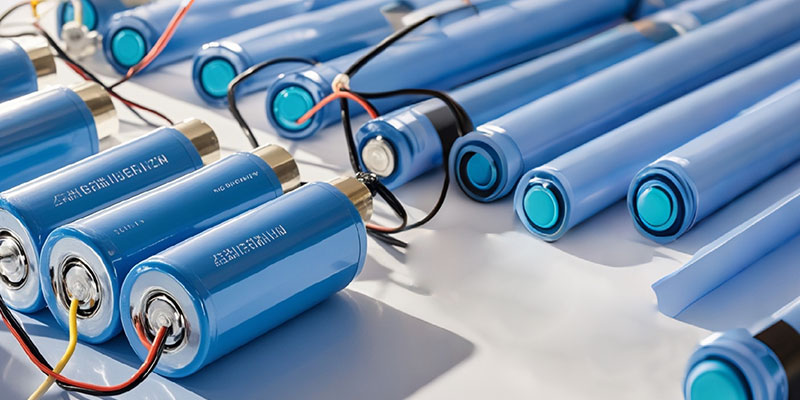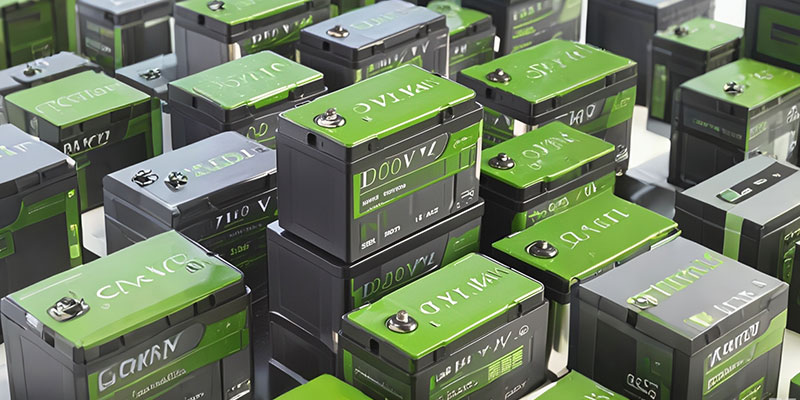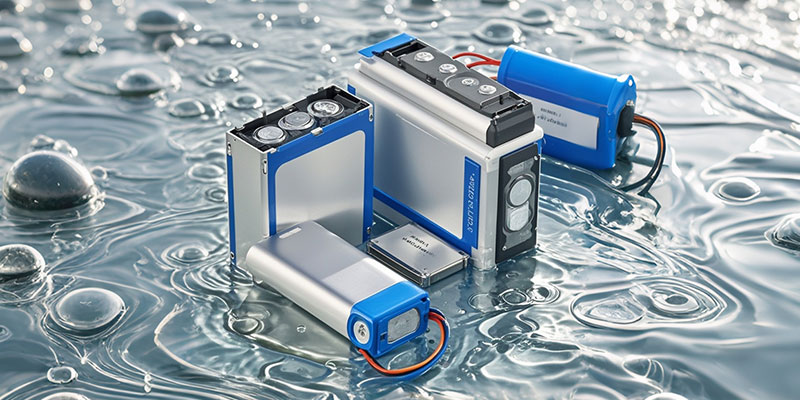The Future of Lithium Battery Technology: Trends Every Wholesale Buyer Should Know
Introduction
Lithium battery technology has revolutionized the way we power our world, from smartphones and laptops to electric vehicles and renewable energy storage systems. As the backbone of modern electronics, lithium batteries are continuously evolving to meet the increasing demands for efficiency, capacity, and sustainability. For wholesale buyers, staying informed about the future trends in lithium battery technology is crucial for making strategic purchasing decisions that align with market developments.
This article delves into the significant trends shaping the future of lithium battery technology. By understanding these advancements, wholesale buyers can position themselves advantageously in the market, offering cutting-edge solutions that meet the evolving needs of their customers.

Trend 1: Increased Energy Density
One of the primary objectives in lithium battery development is enhancing energy density—the amount of energy stored per unit volume or weight. Higher energy density translates to longer-lasting batteries without increasing size or weight, a critical factor for portable devices and electric vehicles.
Advancements in New Materials
- Silicon-Based Anodes: Traditional lithium-ion batteries use graphite anodes, but silicon-based anodes are gaining attention due to their potential to hold up to ten times more lithium ions. This switch could significantly boost energy density but requires overcoming challenges like volume expansion during charging cycles.
- Solid-State Electrolytes: Replacing liquid electrolytes with solid materials can increase energy density and improve safety. Solid-state batteries allow for the use of lithium metal anodes, which offer higher capacity.
Impact on Device Miniaturization and Endurance
- Smaller, Lighter Devices: Increased energy density enables manufacturers to design more compact and lightweight devices without compromising battery life, enhancing portability and user convenience.
- Extended Range for Electric Vehicles: For EVs, higher energy density means longer driving ranges, addressing one of the main consumer concerns and promoting wider adoption.
Considerations for Wholesale Buyers
Wholesale buyers should monitor developments in energy density to offer products that meet future consumer expectations for longer battery life and more efficient devices.
Trend 2: Cost Reduction
Cost has always been a significant barrier to the widespread adoption of lithium battery-powered technologies. However, advancements are driving prices down, making these batteries more accessible.
Scale Production and Technological Progress
- Economies of Scale: As production scales up, the cost per unit decreases. Gigafactories and mass production facilities are contributing to lower prices.
- Improved Manufacturing Processes: Technological innovations in manufacturing reduce waste and increase yield, further decreasing costs.
Impact on Market Competition and Product Adoption
- Competitive Pricing: Lower battery costs enable companies to price their products more competitively, increasing market share.
- Broader Market Penetration: Affordable batteries facilitate the adoption of electric vehicles and renewable energy storage solutions, expanding the market.
Considerations for Wholesale Buyers
Lower costs present an opportunity to increase margins or pass savings to customers, enhancing competitiveness. Buyers should negotiate pricing and consider long-term partnerships with manufacturers to capitalize on cost reductions.
Trend 3: Rise of Solid-State Batteries
Solid-state batteries represent a significant leap forward in battery technology, promising enhanced performance and safety.
Advantages of Solid-State Batteries
- Improved Safety: Eliminating liquid electrolytes reduces the risk of leakage and combustion, addressing safety concerns.
- Higher Energy Density: Solid-state batteries can potentially offer higher energy density, extending device usage times and vehicle ranges.
- Longer Lifespan: They tend to have better charge-discharge cycle stability, increasing battery life.
Commercialization Progress and Application Prospects
- Automotive Industry Focus: Major car manufacturers are investing heavily in solid-state battery research, with expectations of commercialization in the coming years.
- Consumer Electronics Potential: Smaller solid-state batteries could revolutionize portable electronics with longer-lasting, safer power sources.
Considerations for Wholesale Buyers
Stay informed about solid-state battery developments to be among the first to offer these next-generation products. Establish relationships with manufacturers at the forefront of this technology to secure supply chains early.
Trend 4: Rapid Charging Technology
The ability to charge batteries quickly without degrading their lifespan is a significant focus area.
Development of New Charging Technologies
- High-Rate Charging Materials: Innovations in electrode materials that can handle rapid ion transfer without overheating or degrading.
- Advanced Charging Algorithms: Smart charging systems that optimize current flow to balance speed and battery health.
Impact on User Experience and Usage Scenarios
- Convenience: Rapid charging reduces downtime, enhancing user satisfaction, especially for EVs and critical devices.
- New Applications: Quick-charging batteries enable new use cases, such as in emergency services and high-demand industrial equipment.
Considerations for Wholesale Buyers
Offering products with rapid charging capabilities can differentiate your offerings and meet growing consumer expectations. Ensure that the batteries you source are compatible with fast-charging infrastructure and maintain safety standards.
Trend 5: Sustainability and Environmental Friendliness
Environmental concerns are driving the push towards more sustainable battery technologies.
Advances in Recycling Technologies
- Efficient Material Recovery: New recycling methods improve the retrieval of valuable materials like lithium, cobalt, and nickel, reducing the need for mining.
- Circular Economy: Recycling batteries supports a circular economy, minimizing environmental impact and promoting resource sustainability.
Use of Eco-Friendly Materials and Policy Support
- Alternative Materials: Research into less toxic and more abundant materials, such as sodium or magnesium, aims to create greener batteries.
- Government Regulations: Policies promoting environmental responsibility are encouraging manufacturers to adopt sustainable practices.
Considerations for Wholesale Buyers
Aligning with sustainable practices can enhance brand image and meet regulatory requirements. Source batteries from manufacturers committed to environmental stewardship.
Trend 6: Internet of Things and Smart Battery Management
The integration of batteries with IoT technologies is enhancing performance, monitoring, and management capabilities.
Development of Smart Battery Management Systems
- Real-Time Monitoring: IoT-enabled batteries can provide real-time data on performance, health, and usage patterns.
- Predictive Maintenance: Early detection of potential issues allows for proactive maintenance, reducing downtime.
Integration with IoT for Remote Monitoring and Optimization
- Energy Efficiency: Smart systems optimize energy use, extending battery life and reducing operational costs.
- Enhanced Safety: Continuous monitoring improves safety by detecting anomalies early.
Considerations for Wholesale Buyers
Investing in smart batteries can offer value-added services to customers. Ensure compatibility with existing IoT systems and provide support for integration.
About Himax Electronics
Company Overview
Himax Electronics is a leading innovator in lithium battery technology, committed to delivering high-quality, future-ready energy solutions. With a focus on research and development, we strive to stay ahead of industry trends and provide our clients with cutting-edge products.
Himax’s Advantages in Lithium Battery Technology
- Advanced R&D: Our dedicated team works tirelessly on developing new materials and technologies, such as solid-state batteries and smart BMS.
- Quality Assurance: We adhere to strict quality control protocols, ensuring our products meet and exceed international standards.
- Sustainability Commitment: Himax is dedicated to environmentally friendly practices, including the use of eco-friendly materials and recycling initiatives.
How Himax Provides Future Trends Solutions for Wholesale Buyers
- Innovative Products: We offer a range of products that incorporate the latest trends, such as high-energy-density batteries and smart battery systems.
- Customized Solutions: Understanding that each client has unique needs, we provide tailored solutions to meet specific requirements.
- Comprehensive Support: From technical assistance to after-sales service, Himax is committed to supporting our clients at every step.

Conclusion
The future of lithium battery technology is poised for exciting developments that will transform industries and redefine what’s possible. Trends such as increased energy density, cost reduction, the rise of solid-state batteries, rapid charging technologies, sustainability, and IoT integration are shaping the market.
For wholesale buyers, staying informed and adapting to these trends is essential. Partnering with forward-thinking manufacturers like Himax Electronics ensures access to innovative products and technologies that will meet future demands.
Embrace these trends to stay competitive and meet your customers’ evolving needs. By choosing reliable and innovative suppliers, you can confidently navigate the future of lithium battery technology.



